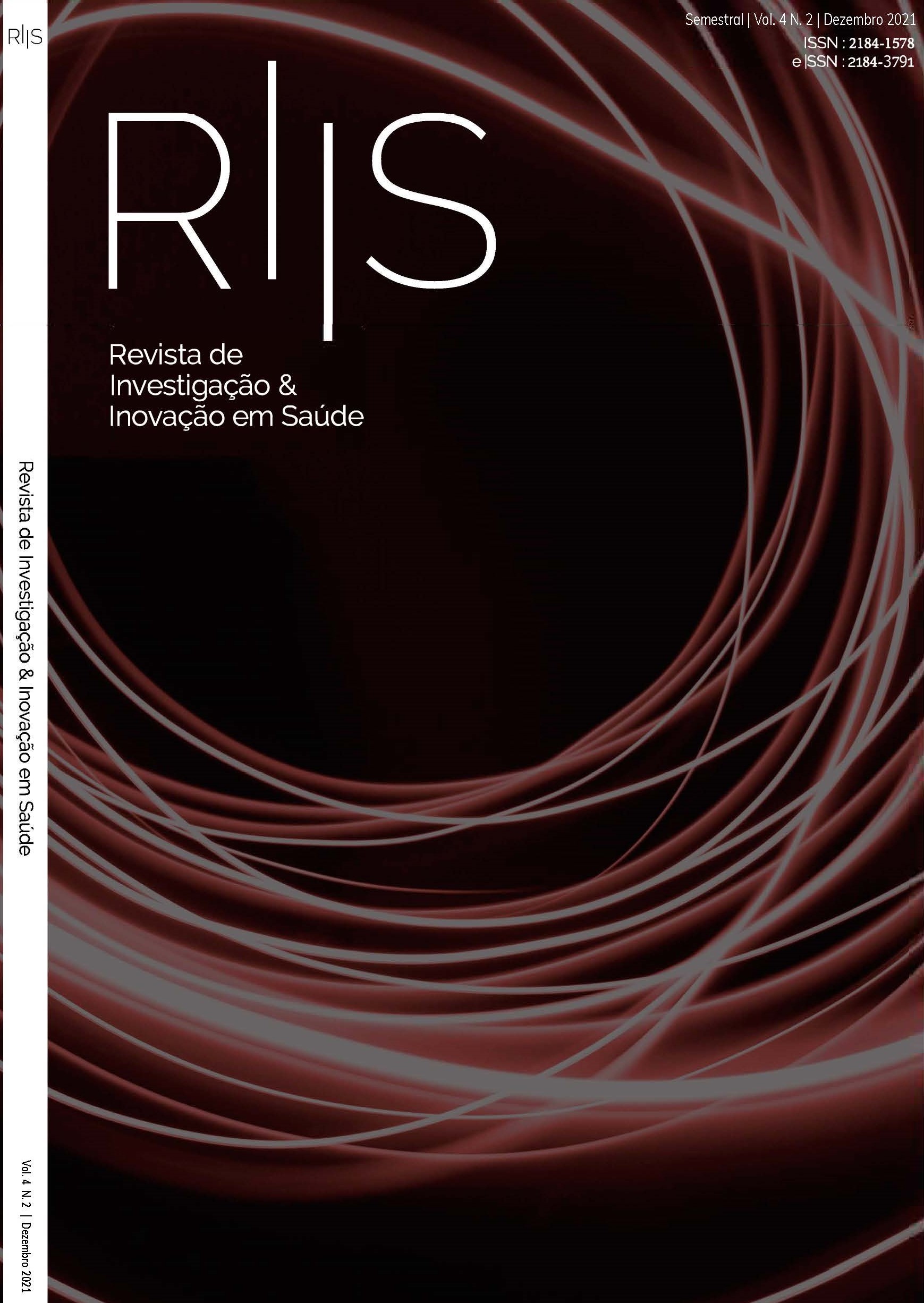Anxiety associated with family caregiver role in caring for the dependent person
DOI:
https://doi.org/10.37914/riis.v4i2.123Keywords:
Ansiedade; Cuidador Familiar; SobrecargaAbstract
Background: most home care to dependent person is provided by a caregiver, family member of the person being cared for, who provides care in an unpaid manner. Nowadays, there are growing concerns about his mental health, and anxiety and burden are often associated with the caregiver role. Objective: to analyse the relation between sociodemographic variables and caregiver burden and anxiety. Methodology: quantitative, transversal study, with a snowball sample of 85 caregivers. The Zarit Burden Interview Scale and The Depression Anxiety Stress Scale and t Student, Kruskal-Wallis and U Mann-Whitney tests were used. Results: caregivers had a mean age of 51.97 years, were mostly female, married and had education up to nineth grade. It was found that 38.8% of caregivers had anxiety. Those who showed greater anxiety were between 50 and 60 years old (p=0.023) and had higher education (p=0.009). There are no statistically significant differences between other variables. Conclusion: age and education seem to have an influence on caregiver anxiety. Since the caregiver's anxiety can have repercussions on the person being cared for, it is extremely important to prevent and promote their mental health.
References
Apóstolo, J., Mendes, A., Antunes, M. T. C., Rodrigues, M. A., Figueiredo, M. H., & Lopes, M. C. F. da G. (2011). Perturbações afectivo-emocionais em contexto de cuidados de saúde primários. Revista de Enfermagem Referência, III Série(3), 67–74. DOI: https://doi.org/10.12707/RIII1024
Cabral, L., Duarte, J., Ferreira, M., & Santos, C. (2014). Anxiety, stress and depression in family caregivers of the mentally ill. Atencion Primaria, 46(Espec Cong 1), 176–179. https://doi.org/10.1016/S0212-6567(14)70087-3 DOI: https://doi.org/10.1016/S0212-6567(14)70087-3
Cottagiri, S. A., & Sykes, P. (2019). Key health impacts and support systems for informal carers in the UK: A thematic review. Journal of Health and Social Sciences Advance Online Publication, 4(2), 173–198. https://doi.org/doi10.19204/2019/kyhl11
Delalibera, M., Presa, J., Barbosa, A., & Leal, I. (2015). Sobrecarga no cuidar e suas repercussões nos cuidadores de pacientes em fim de vida: revisão sistemática da literatura. Ciência & Saúde Coletiva, 20(9), 2731–2747. https://doi.org/10.1590/1413-81232015209.09562014 DOI: https://doi.org/10.1590/1413-81232015209.09562014
Figueiredo, D., & Sousa, L. (2008). Percepção do estado de saúde e sobrecarga em cuidadores familiares de idosos dependentes com e sem demência. Revista Portuguesa de Saúde Pública, 26(1), 15–24.
Gratao, A. C. M., Vendrúscolo, T. R. P., Talmelli, L. F. da S., Figueiredo, L. C., Santos, J. L. F., & Rodrigues, R. A. P. (2012). Sobrecarga e desconforto emocional em cuidadores de idosos. Texto e Contexto Enfermagem, 21(2), 304–312. https://doi.org/10.1590/S0104-07072012000200007 DOI: https://doi.org/10.1590/S0104-07072012000200007
Jácome, C., Figueiredo, D., Gabriel, R., Cruz, J., & Marques, A. (2014). Predicting anxiety and depression among family carers of people with Chronic Obstructive Pulmonary Disease. International Psychogeriatrics, 26(7), 1191–1199. https://doi.org/10.1017/S1041610214000337 DOI: https://doi.org/10.1017/S1041610214000337
Karabekiroğlu, A., Demir, E. Y., Aker, S., Kocamanoğlu, B., & Karabulut, G. S. (2018). Predictors of depression and anxiety among caregivers of hospitalised advanced cancer patients. Singapore Med J, 59(11), 572–577. DOI: https://doi.org/10.11622/smedj.2018066
Loh, A. Z., Tan, J. S., Zhang, M. W., & Ho, R. C. (2017). The Global Prevalence of Anxiety and Depressive Symptoms Among Caregivers of Stroke Survivors. Journal of the American Medical Directors Association, 18(2), 111–116. https://doi.org/10.1016/j.jamda.2016.08.014 DOI: https://doi.org/10.1016/j.jamda.2016.08.014
Lovibond, P., & Lovibond, S. (1995). The structure of negative emotional states: Comparison of the depression anxiety stress scales (DASS) with the Beck Depression and Anxiety Inventories. Behaviour Research and Therapy, 33(3), 335–343. DOI: https://doi.org/10.1016/0005-7967(94)00075-U
Martins, T., Araújo, M. F., Peixoto, M. J., & Machado, P. P. (2016). A Pessoa Dependente e o Familiar Dependente (1ª ed.). Lusodidacta
Melo, R. (2020). A Transição para o Papel de Cuidador Familiar: A Família, o Cuidador Familiar e a Pessoa Dependente (1ª ed.). Novas Edições Académicas.
Min, J. A., Yu, J. J., Lee, C. U., & Chae, J. H. (2013). Cognitive emotion regulation strategies contributing to resilience in patients with depression and/or anxiety disorders. Comprehensive Psychiatry, 54, 1190–1197. https://doi.org/10.1016/j.comppsych.2013.05.008 DOI: https://doi.org/10.1016/j.comppsych.2013.05.008
Pais-Ribeiro, J. L., Honrado, A., & Leal, I. (2004). Contribuição para o estudo da adaptação portuguesa das escalas de ansiedade, depressão e stress (EADS) de 21 itens de Lovibond e Lovibond. Psicologia, Saúde & Doenças, 5(2), 229–239.
Pristavec, T. (2019). The caregiving dyad: Do caregivers’ appraisals of caregiving matter for care recipients’ health? Archives of Gerontology and Geriatrics, 82, 50–60. https://doi.org/10.1016/J.ARCHGER.2019.01.020 DOI: https://doi.org/10.1016/j.archger.2019.01.020
Sallim, A. Bin, Sayampanathan, A. A., Cuttilan, A., & Chun-Man Ho, R. (2015). Prevalence of Mental Health Disorders Among Caregivers of Patients With Alzheimer Disease. Journal of the American Medical Directors Association, 16(12), 1034–1041. https://doi.org/10.1016/j.jamda.2015.09.007 DOI: https://doi.org/10.1016/j.jamda.2015.09.007
Sequeira, C., Lange, C., Sousa, L., & Llano, P. (2018). Cuidar de Idosos com Dependência Física e Mental (2a ed.). Lidel.
Wilks, S. E., Little, K. G., Gough, H. R., & Spurlock, W. J. (2011). Alzheimer’s aggression: Influences on caregiver coping and resilience. Journal of Gerontological Social Work, 54(3), 260–275. https://doi.org/10.1080/01634372.2010.544531 DOI: https://doi.org/10.1080/01634372.2010.544531
Zarit, S. H., & Zarit, J. M. (1983). The memory and behaviour problems checklist - and the burden interview. Technical report. Pennsylvania State University
Zhao, J., Zeng, Z., Yu, J., Xu, J., Chen, P., Chen, Y., … Ma, Y. (2021). Effect of main family caregiver’s anxiety and depression on mortality of patients with moderate-severe stroke. Scientific Reports, 11(1). https://doi.org/10.1038/s41598-021-81596-8 DOI: https://doi.org/10.1038/s41598-021-81596-8
Downloads
Published
How to Cite
Issue
Section
License
Copyright (c) 2021 Marta Silva

This work is licensed under a Creative Commons Attribution 4.0 International License.















